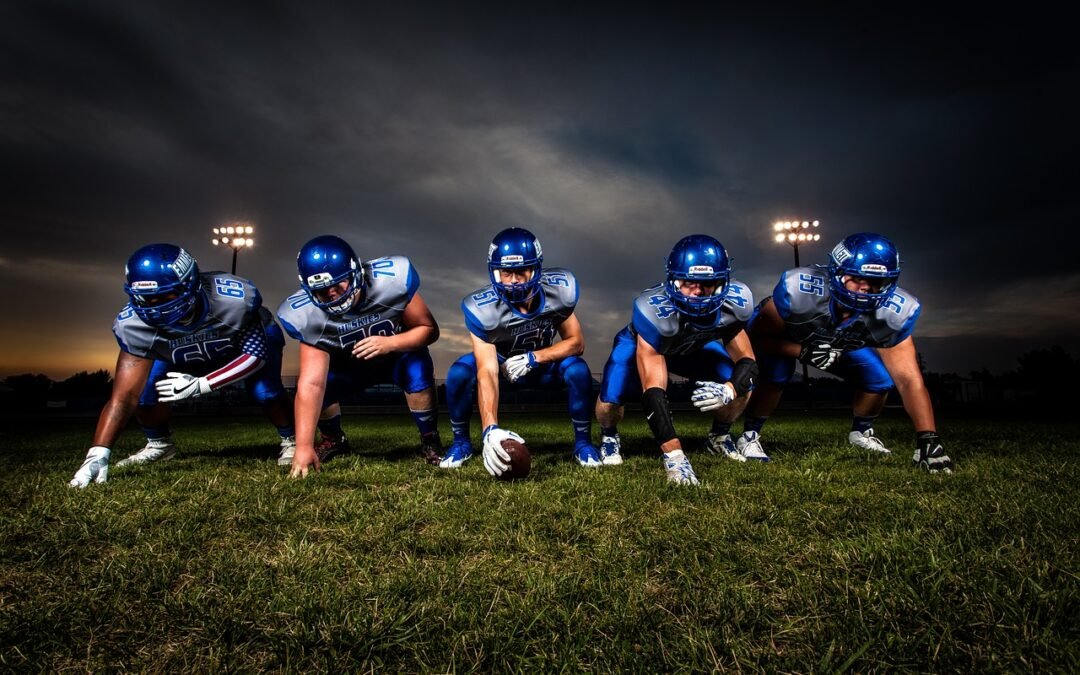Have you, or someone you know had a concussion? I have had one and it is not pleasant. I was knocked off my skates while playing hockey, by three girls (it was a competitive tournament to say the least) at the blue line when I was setting up for a slap-shot. I do not remember the rest of the game. And my teammates said I was singing during the third period. I guess I was happy? That was sarcasm! I was showing signs of a concussion.
Concussion has gained a lot of news in the past few years, especially since the longterm brain effects of repeated concussion on football players was introduced in a book, ‘Truth Doesn’t Have a Side: My Alarming Discovery about the Danger of Contact Sports’, by Bennet Omalu. It is a great read if you have not heard of the book. I would certainly recommend it. I had the pleasure of seeing Bennet Omalu speak at a conference once. He was so inspiring and truly compassionate about his work.
Some statistics report the total number of concussions treated a year at 3.8 million. I think this number may actually be low. 250,000 kids get treated for concussion a year at emergency rooms, mostly from sports injuries. However, I am sure there are many more kids seeking out care from their pediatricians that are not being factored into that number.
What we need to keep in mind is that many concussions go undiagnosed and/or untreated and when people finally get a diagnosis then they are still working on managing their longterm symptoms.
Let us define concussion and the grades of concussion. Then we can look at some nutritional supplements that can help you manage it.
Concussion is the most minor form of a traumatic brain injury. A concussion means you have had a temporary loss of normal brain function. Concussions usually occur with a direct bump or blow to the head, but can also be caused by a hit to the body that may jerk or jolt the head. The sudden impact makes the brain bounce around in the skull; essentially you’ve bruised your brain.
Grading concussions as one, two or three, depends on its severity.
A grade one is a mild concussion. No loss of consciousness and symptoms last under 15 minutes. A grade two concussion is moderate. There is no loss of consciousness, but symptoms last longer than 15 minutes. And a grade three concussion is severe, with a brief loss of consciousness.
Only about one in 10 people who get a concussion lose consciousness. However, most concussions are diagnosed based on symptoms. An MRI, x-ray or CT scan does not necessarily show a concussion, though it could show brain damage. Blood tests for concussion are still under development. This leaves us with diagnosing concussions based on symptoms.
Concussion symptoms can be one or more of a range of symptoms. The most common symptoms are:
Foggy, dazed, disoriented
Inability to follow directions or inability to focus
Disturbance of awareness
Nausea and vomiting
Dizziness (probably most common)
Other symptoms may include but not limited to:
Headache
Double vision
Balance problems
Sensitivity to light or sound
Constant tiredness/fatigue
Sleep disturbances
Lack of concentration
Depression
Irritability
Please note that if there is inflammation in the brain, there is inflammation in the gut and vice versa – the brain-gut axis. This occurs through the vagus nerve and that will be a whole other post on leaky gut syndrome. The important thing to know is by using nutrition and supplements we can help manage symptoms by helping reduce inflammation and substance P (neurotransmitter that makes us feel pain) that occurs with concussion.
Nutritional Steps to Help Speed Recovery
Protein
1g/Kg of body weight. After a head injury your body needs extra protein to help healing and to rebuild damaged tissue.
Creatine
For energy production in the cells.
Bromelain, quercetin, ginger, turmeric, resveratrol, grapeseed extract
All natural anti-inflammatory supplements to help reduce inflammatory damage in the brain.
EPA/DHA
EPA and DHA are found in fish oil. They help to reduce inflammation. DHA helps build strong, flexible cell membranes in neurons and EPA suppresses the production of inflammatory chemicals.
Alpha-lipoic-acid (ALA), vitamin C
Inflammation creates a lot of free-radicals so you can take anti-oxidants to help reduce the damage.
Choline
Choline is a member of the B vitamin family and it may improve cognitive function.
Vitamin D
Vitamin D is neuroprotective.
Zinc and Magnesium
Helps make enzymes for central nervous system neurotransmitters.
Magnesium is one of the best weapons against delayed brain injury and post-concussion syndrome by way of helping reduce inflammation and raising glutathione (anti-oxidant) in cells.
Acetyl-L-carnitine
Helps energize the brain.
Glutathione
In a clinical setting you can be given glutathione intravenously, but orally your stomach acid destroys glutathione.
Glutathione is your body’s most important antioxidant, so to help produce glutathione by way of building blocks you can use vitamin C, selenium, niacinamide (Vitamin B3), N-acetyl-L-cysteine and broccoli extract.
There are some online companies that produce glutathione, the product Immunocal and Protandim. I will leave it up to you to research these.
The faster you begin implementing these nutritional supplements after a concussion, the better your chances of healing, reducing inflammation and ultimately helping manage your symptoms. The longer you wait after an injury to seek some sort of treatment, the longer it takes to recover.
John Lennon – “Everything will be okay in the end. And if it is not okay, it is not the end.”




